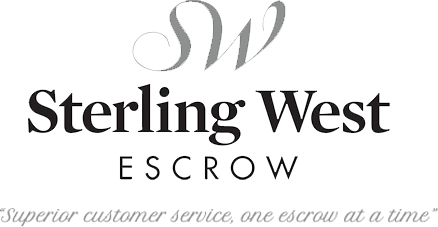Hidden Closing Costs You May Not Know About
 Buying a house in Los Angeles is an expensive process. You have the large lump-sum of your down payment, the 30 year (in many cases) monthly mortgage payments you will have to make that include interest, taxes, insurance, and principal repayment AND you have the closing costs. You’ve heard of these, but what exactly contributes to these costs? Well, if you’re not sitting down, you should be. The following is a long list of hidden fees that can make up the expensive closing costs that are part of buying a home. Some are small, while others are more substantial. Whatever the case, it is important to know exactly where your money is going.
Buying a house in Los Angeles is an expensive process. You have the large lump-sum of your down payment, the 30 year (in many cases) monthly mortgage payments you will have to make that include interest, taxes, insurance, and principal repayment AND you have the closing costs. You’ve heard of these, but what exactly contributes to these costs? Well, if you’re not sitting down, you should be. The following is a long list of hidden fees that can make up the expensive closing costs that are part of buying a home. Some are small, while others are more substantial. Whatever the case, it is important to know exactly where your money is going.
-
Home Inspection Costs
Before you make a purchase as significant and financially exhausting as buying a house, you want to be sure you aren’t buying a money-pit. For this reason, it is essential to have a home inspector go through the house you are considering to make sure the foundation is sound, the water pipes are in good shape, and that there aren’t any major problems with the home. If you neglect this process, you could end up purchasing a house that digs even deeper into your wallet to fix disrepairs. Some mortgage insurance companies even require a home inspection before they agree to insure your loan. Either way, be prepared to pay out to make sure you’re not purchasing a damaged house.
-
Tax Costs
When you decide to buy a house, you know you’ll be paying property taxes, but you may not know that you will have to start paying those during the closing process. Every state has different tax rates and laws, so check with your realtor to determine what is acceptable in your local area.
-
Closing Fees
It’s important to budget for closing fees before you decide how much you are able to spend on a new home. About two to five percent of the purchase price of the home you are buying must be presented to cover closing fees. These fees can include, but are not limited to:
- Lender Processing fees: these cover the cost of processing your loan application.
- Recording fees: these cover the record keeping by the local municipality to state your property ownership.
- Underwriting fees: these also go to the lender to cover processing, but a different kind of processing than the lender processing fee. Underwriting fees cover the hours of research done to decide whether or not you should be approved for a loan based on credit score and other factors.
- Surveyor’s fee: this goes to a survey company who explicitly defines your property lines and distinguishes them from your neighbors’.
- Credit Report fees: every time you request access to your credit history and your credit score, you must pay a fee.
-
Appraisal Costs
When you’re buying a house, it may seem like you’re the only one who is working to make sure you get a good value in the home you choose. That’s really not the case! If a bank is going to lend you a substantial amount of money (say, upwards of $200,000) they want to make sure they aren’t lending it to you to buy something that’s not worth your money. Thus, many times the bank will want to send out an appraisal representative to assess the market value of the home and its worth compared to the asking price. If the appraiser does not think the home is worth what you are paying for it, price negotiations will continue until a fair price is determined.
-
Escrow Fees
Closing costs are not just associated with parties that are outside of the transaction.The professionals who conducted the closing process deserve to be compensated for their work, too. Oftentimes, this authority is an escrow company, who holds all legal documents, earnest monies, etc. that are involved in the transaction. These escrow agents are responsible for releasing the money at the correct time and keeping all things neutral and organized between every party involved, not just the buyer and seller. Many times the buyer and seller will split the escrow costs.
Make sure you research every cost, including closing costs, that is associated with buying a new house. The more you know, the better you can be prepared with an appropriate budget.
For all your premier west coast escrow service needs, call Sterling West Escrow. Our certified escrow officers are friendly and knowledgeable, and will look out for your best interests throughout your transaction.
